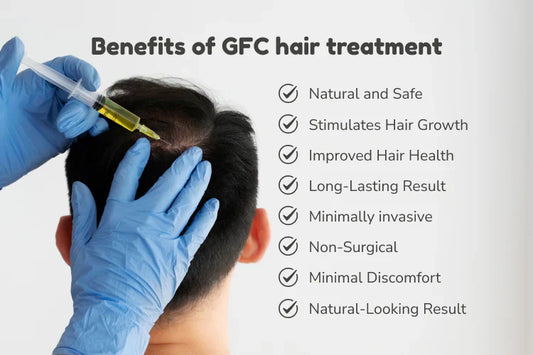
Normal Hair Shedding in Men: A Complete Guide t...
Summary This guide clarifies what normal hair shedding in men actually looks like, how many hairs you can lose per day without concern, and how to spot early warning signs...

Vitamin D Deficiency and Hair Loss: The Complet...
Summary (Angle + Value) This evidence-based guide explains how vitamin D deficiency is linked to hair loss, what symptoms to watch for, how testing actually works, and what recovery looks...

High Testosterone and Hair Loss: A Complete Sci...
Summary (Angle + Value) This guide breaks down the real science behind the “high testosterone = bald” myth by explaining how DHT, genetics (androgen receptor sensitivity), and follicle miniaturization drive...

Whey Protein and Hair Loss: The Complete Eviden...
Summary This guide examines the link between whey protein and hair loss, separating scientific evidence from gym myths. You’ll learn how whey may influence DHT, insulin, and hormones, who is...

Hormones That Cause Hair Loss in Women: A Compl...
Summary This guide explains which hormones cause hair loss in women, how hormonal imbalances trigger thinning or excessive shedding, and which tests confirm the root cause. You’ll gain a clear,...

Blood Tests for Hair Loss: The Complete Diagnos...
Summary This guide explains which blood tests are essential for diagnosing hair loss, how to interpret abnormal results, and how deficiencies or hormonal imbalances contribute to shedding and thinning. You’ll...

The Top 5 Foods That Prevent Hair Loss: A Nutri...
Summary This blog explores the top 5 scientifically backed foods that help prevent hair loss and support stronger hair growth, focusing on nutrients that reduce DHT, improve scalp health, and...

Smoking and Hair Loss: The Complete Scientific ...
Summary This blog examines whether smoking causes hair loss by breaking down the biological mechanisms linking nicotine, toxins, and oxidative stress to hair follicle damage. You’ll learn whether hair loss...

Creatine and Hair Loss: The Definitive Science ...
Summary This blog breaks down the science behind Creatine causing hair loss, separating myths from evidence by examining DHT, muscle supplements, and genetics. Readers will learn whether creatine truly affects...

Vitamin Deficiencies That Cause Hair Loss: A Co...
Summary Hair loss is often a sign of internal imbalance rather than just a genetic issue. This blog explains which vitamin deficiencies cause hair loss, how to recognize their symptoms,...
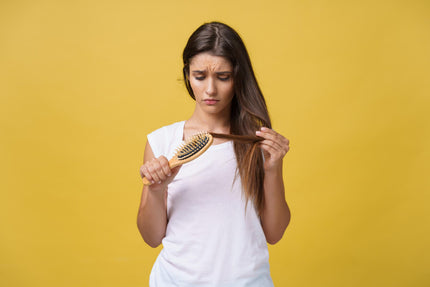
How to Reduce Hair Fall and Increase Hair Growt...
TL;DR Hair fall is not a random event in your life. It always has a cause behind it, the most common ones being hormonal imbalances (like DHT), nutritional gaps, stress,...
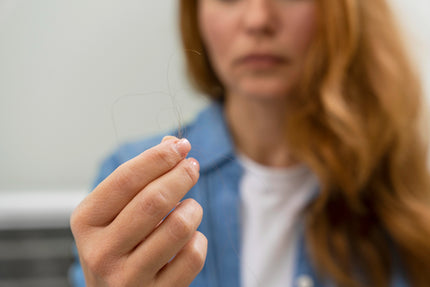
Best Treatment for Thinning Hair: Expert-Backed...
If you are suddenly seeing a lot of hair strands on your pillow or your scalp is becoming visible than usual, then it could be an alarming sign of...
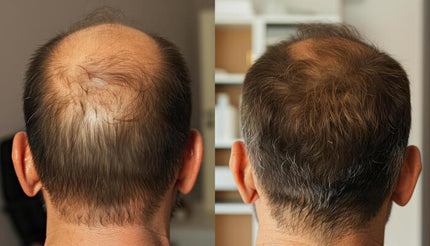
How to Increase Hair Growth Naturally – Proven ...
Summary: Healthy, vibrant hair comes from treating the root causes of thinning, not just the surface. When hormones, nutrition, stress, digestion, or scalp health are out of balance, growth often...
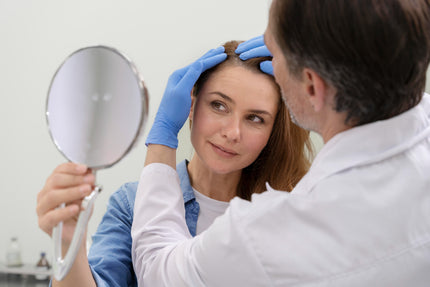
How to Increase Hair Growth: Effective Methods ...
Blog Summary Hair loss affects many people, but effective solutions exist when you understand what's disrupting your hair's natural growth cycle. Common culprits include hormonal imbalances, nutritional deficiencies, chronic stress,...
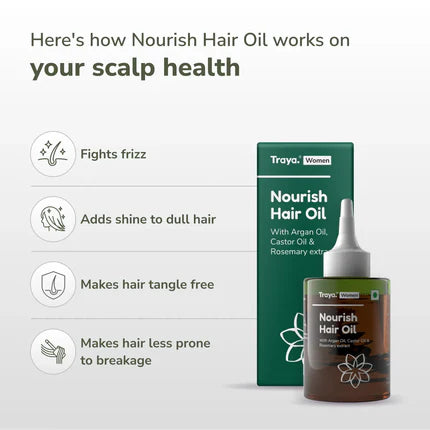
Best Hair Oil for Dandruff and Hair Fall – Ayur...
Summary Dandruff and hair loss are interconnected issues that require a unified approach to treatment. When your scalp's ecosystem becomes imbalanced, fungal overgrowth and inflammation cause flaking while simultaneously weakening...

How to Increase Hair Growth for Men: A Complete...
Summary Male hair growth is influenced by genetics, hormones, nutrition, lifestyle, and scalp health, with DHT sensitivity being the leading cause of thinning. Poor diet, chronic stress, and scalp buildup...
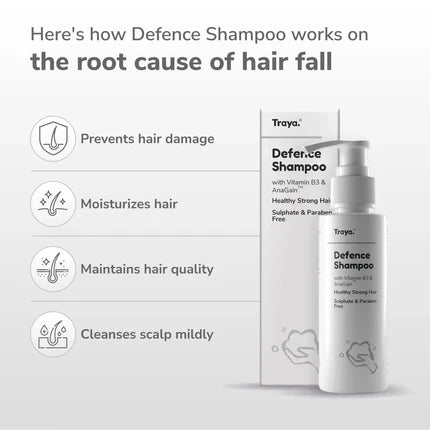
Best Ayurvedic Shampoo for Hair Fall – Gentle Y...
Summary When dealing with hair fall, Ayurvedic shampoos offer a natural alternative to chemical-laden products, which can irritate the scalp and worsen hair loss over time. Unlike these harsh shampoos,...
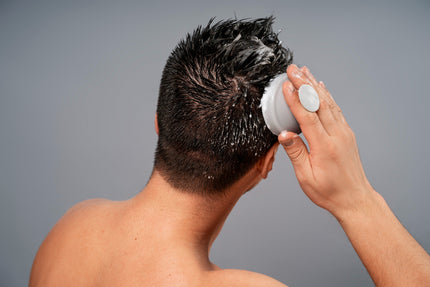
Doctor Recommended Shampoo for Hair Fall: What ...
Summary Hair fall is rarely just about having a dirty scalp. It is often caused by deeper issues such as DHT sensitivity, scalp inflammation, poor circulation, nutritional gaps, and stress....
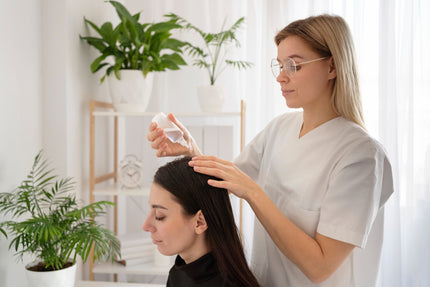
Ayurvedic Treatment for Hair Fall: Heal the Roo...
TL;DR Ayurveda sees hair fall as a sign of internal imbalance, not just an external problem. Common causes: excess Pitta dosha, weak digestion, and stress. Treatment works in 3 ways:...

Best Hair Growth Oil Recommended by Doctors in ...
Summary Hair fall is one of the common concerns faced by Indians, followed by other related issues like dandruff, dryness and many more. When it comes to a solution, Indians...
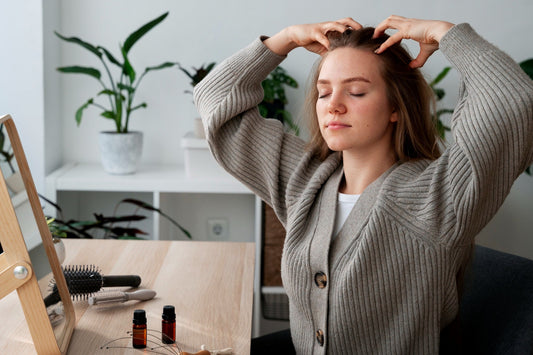
Best Hair Serum for Hair Growth and Thickness i...
Summary: Hair serums for growth and thickness go beyond adding shine, they deliver active ingredients directly to the scalp and follicles. The right formulations with Redensyl, Procapil, peptides, amino acids,...
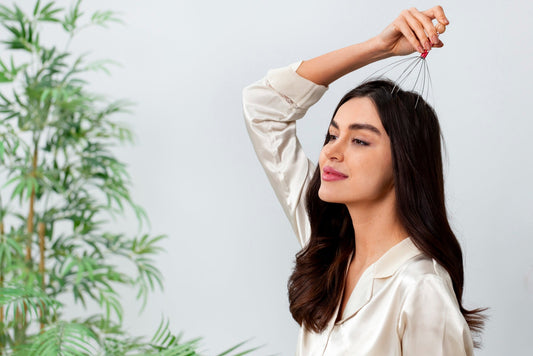
Best Treatment For Fast Hair Growth: A Guide By...
Summary: Hair grows about 0.5 to 1.5 cm per month through a cycle of growth, transition, and rest, but stress, hormonal changes, poor nutrition, and scalp buildup can slow it...
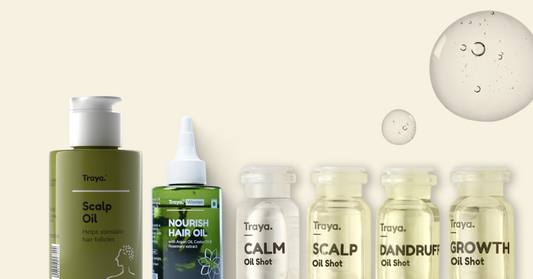
Best Anti-Hair Fall Oil: Strengthen Your Roots ...
No matter your age, gender, or lifestyle, hair fall is a worry that almost everyone faces at some point. For some, it’s the strands left behind on the pillow, for...
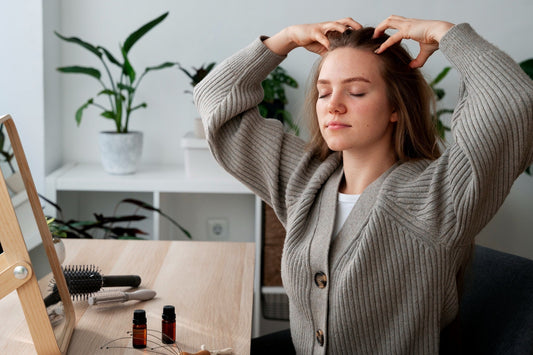
Remedies You Can Try for Hair Fall at Home
If combing or just waving your palm through your hair has started leaving a lot of hair strands on your comb or palm, then you are having a hair fall...

The Science Behind a Personalized Routine for Hair
If you’ve ever felt frustrated staring at a shelf full of half-used shampoos, conditioners, and serums, this is a struggle many people face. The cycle is familiar: you buy products...

Natural Hair Regrowth Treatments That Actually ...
Trying to grow your hair back the natural way? Skip the chemicals and expensive treatments, here’s what you can do instead. This detailed guide focuses on effective natural hair regrowth...

Best Medication For Male Pattern Baldness
Are you looking at more hair in your shower drain or looking back in photos to your hairline crawling? Then you are not alone. The male pattern baldness is super...

Complete Ayurvedic Guide for Hair Loss: Herbs, ...
Your hair fall is not just a cosmetic issue. It is one of the most important signs of deeper imbalances within your body. Nutritional deficiencies, stress, hormonal shifts, and toxins...

Best Treatment For Hair Fall at Home
Are you struggling with hair fall but want to stop it without salon treatments or chemicals? The question is how? The solution lies in your home kitchen. You don’t need...






























